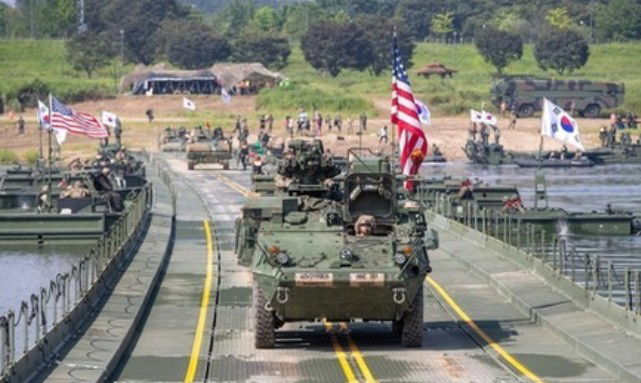America
US says it 'very much supports' Seoul doing more to lead conventional defence against North Korea

Yokota Air Base, Oct 28
The United States "very much" supports South Korea doing more to lead conventional defence against North Korea, a senior US defence official said on Tuesday, as the administration of South Korean President Lee Jae Myung hopes to retake wartime operational control (OPCON) from Washington within its term.
The official made the remarks in a press briefing as US Defence Secretary Pete Hegseth and South Korean Defence Minister Ahn Gyu-back are set to discuss the OPCON transition efforts when they meet for the two countries' annual defence ministerial talks, called the Security Consultative Meeting, in Seoul on November 4.
"We very much support the ROK doing more to lead its conventional defence in deterrence against the DPRK. We support those efforts," the official said during the briefing to the press travelling with Hegseth on his trip to Asia that includes stops in Japan, Malaysia, Vietnam and South Korea.
ROK and DPRK are short for the official names of South Korea and North Korea, the Republic of Korea and the Democratic People's Republic of Korea, respectively.
The official added that Seoul and Washington have had "extensive" discussions on how South Korea can assume the "primary" responsibility for the alliance's conventional defence against North Korea, Yonhap news agency reported.
"We understand that taking wartime OPCON is a priority of South Korean President Lee, and Secretary Hegseth very much looks forward to discussing this issue with Minister Ahn at the SCM," he said.
Asked if a US troop reduction in South Korea is under consideration, the official said that the Pentagon does not have any announcement to share on changes to force posture in South Korea at this time.
Seoul and Washington have been working on the conditions-based OPCON transition.
South Korea handed over operational control of its troops during the 1950-53 Korean War. In 1994, it retook peacetime OPCON, but wartime OPCON still remains in the hands of the US.































